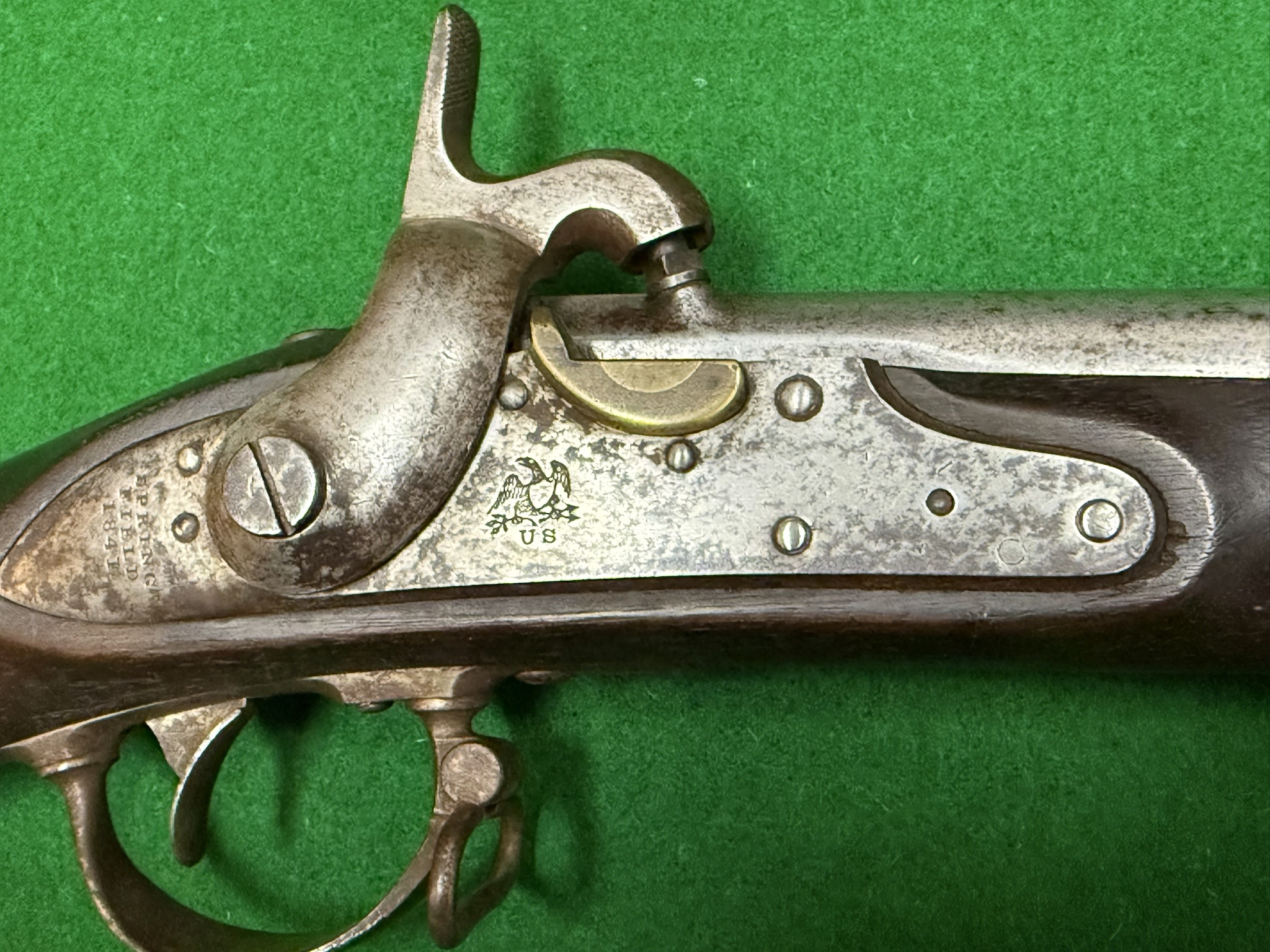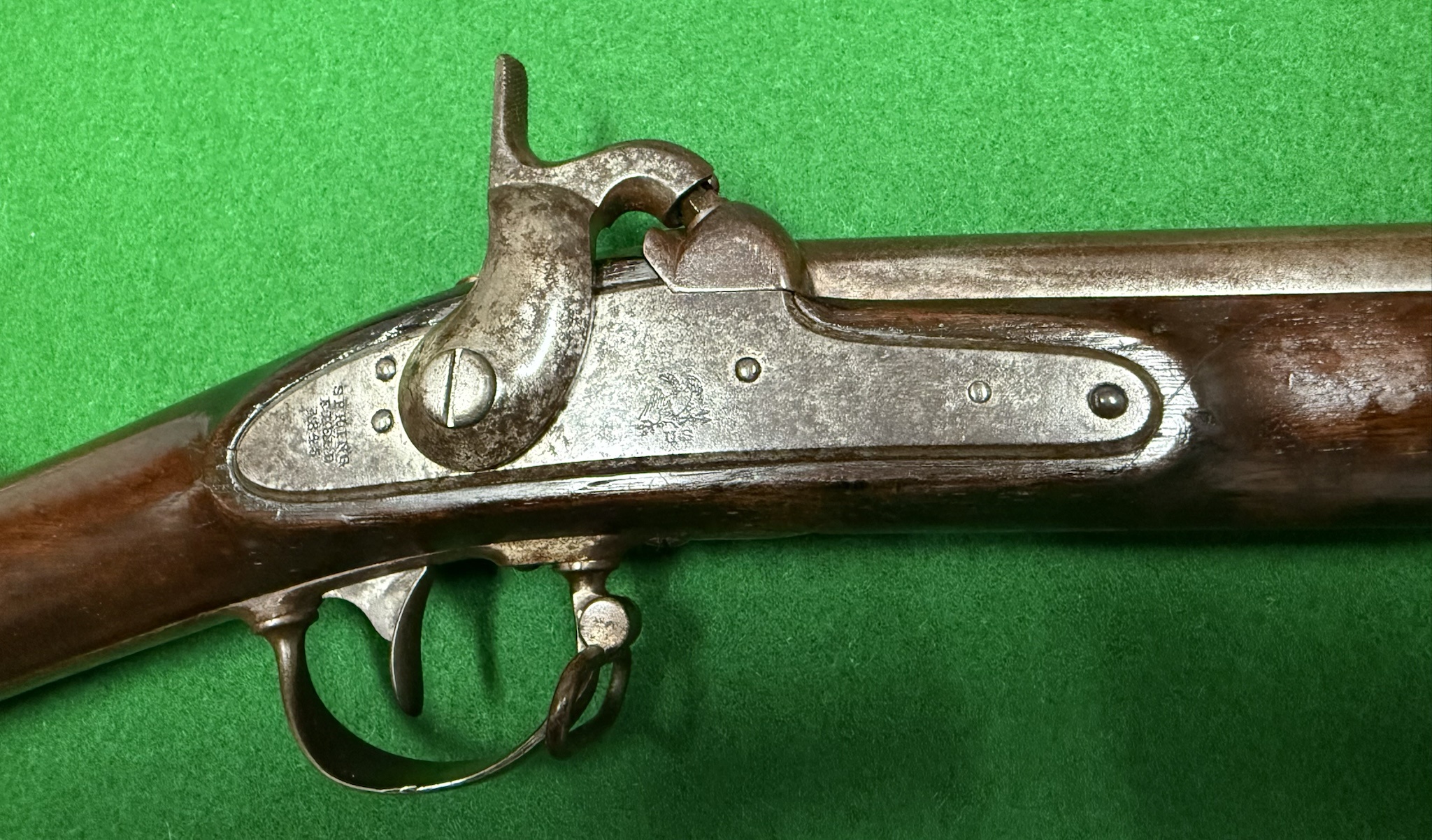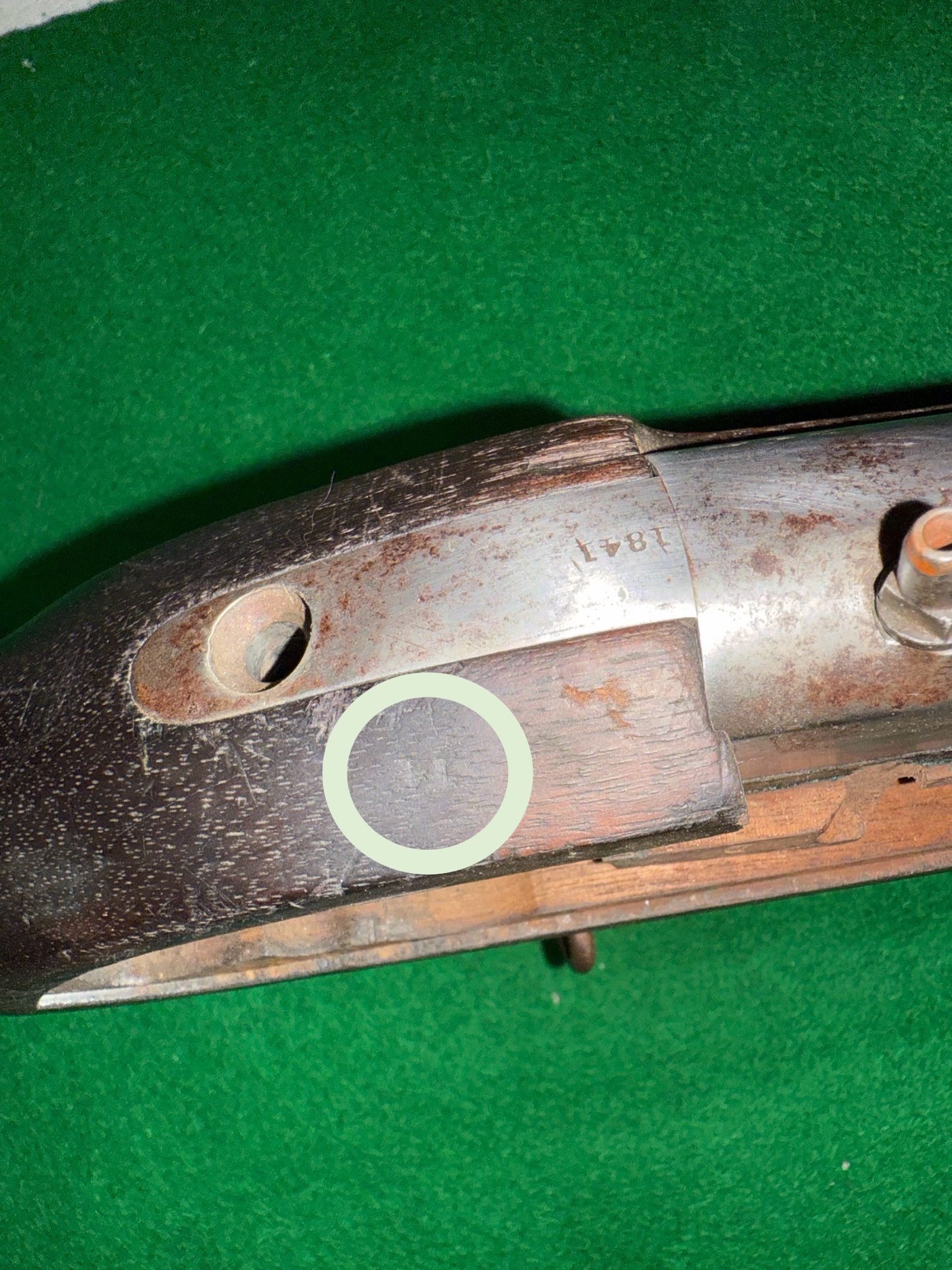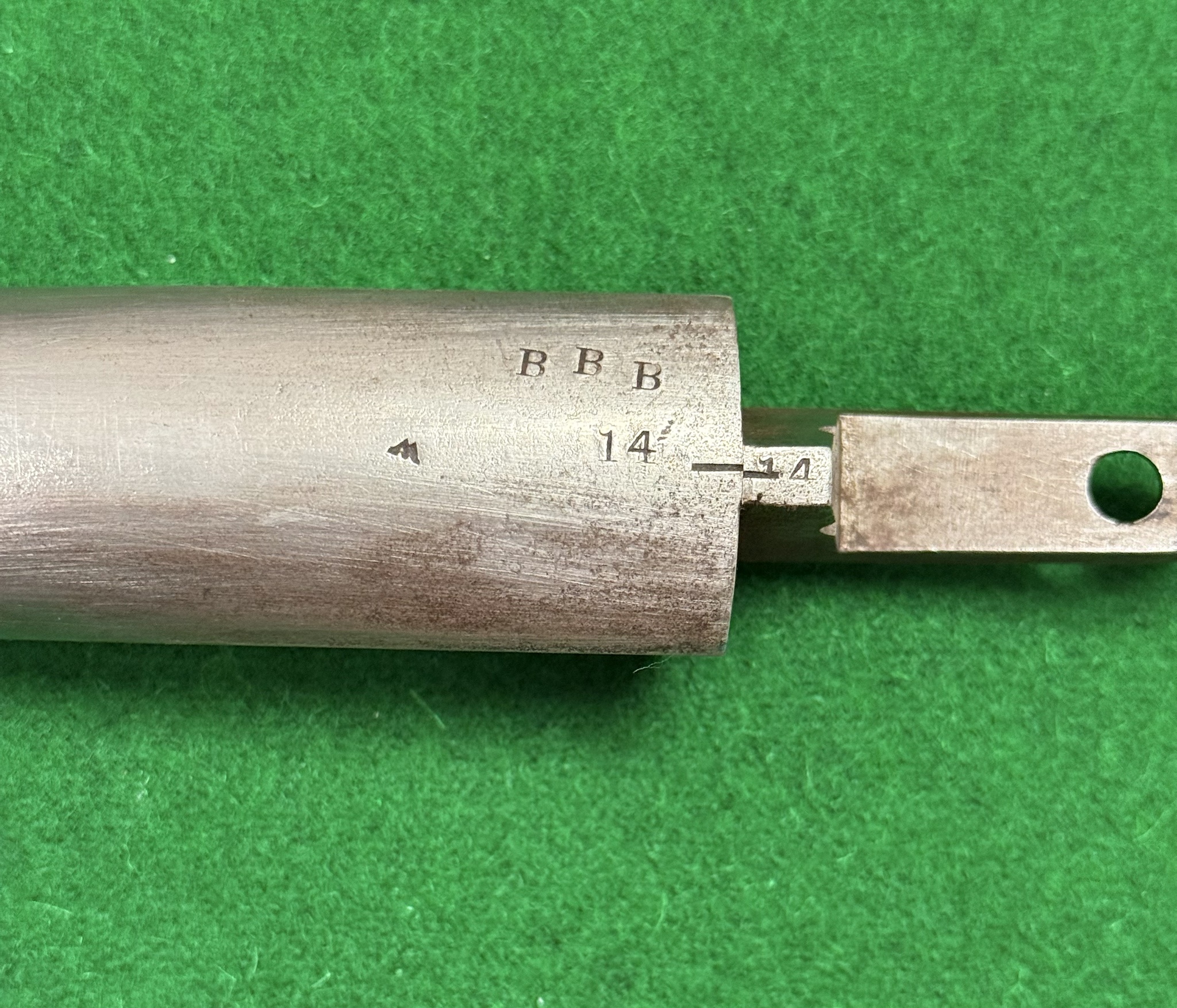You are using an out of date browser. It may not display this or other websites correctly.
You should upgrade or use an alternative browser.
You should upgrade or use an alternative browser.
1842 Springfield 69cal question
- Thread starter Booneman
- Start date

Help Support Muzzleloading Forum:
This site may earn a commission from merchant affiliate
links, including eBay, Amazon, and others.
Don't know what you have there, but it is not an 1842 Springfield. They had a MUCH different percussion snail and it was not a nipple set directly in the barrel. The cock/hammer does not look original and the lock really doesn't, either. The lockplate bolt holes are also wrong. You have a cobbled up Frankenstein, I'm afraid.
I'm pretty sure it is an 1840 flintlock Springfield reworked into a percussion. But I don't know if this was an "arsenal job" or later conversion.
I'm pretty sure it is an 1840 flintlock Springfield reworked into a percussion. But I don't know if this was an "arsenal job" or later conversion.
Last edited:
Not a model 1842, it is a model 1840 made in 1842. They were originally flintlock, this one as most were, was converted to percussion. This one was done with the Belgian, cone in barrel conversion, this was the most common US conversion and officially done by US armorers.
Nice gun. Cool to own an 1840 as they were the last standard military issue flintlock muskets. I've got one with an H&P bolster conversion. Yours is an arsenal Belgian cone-in conversion as stated by Trot. How's the bore condition?
Booneman
32 Cal
Thanks for all the info guys!
Either way I think it’s a cool part of history and I’m happy to have it.
The bore looks fine to me.
Either way I think it’s a cool part of history and I’m happy to have it.
The bore looks fine to me.
Prior answers are spot on. I can only add the following details of the locks of a converted M1840 and an early M1842 for comparative purposes (my most recent acquisitions).
Converted M1840 (like yours):

M1842:

Converted M1840 (like yours):

M1842:

Booneman
32 Cal
Very cool thanks for the info lead!
Very cool thanks for the info lead!
No problem.
If you are comfortable disassembling it, take a look at the stock between the barrel tang and hammer, and see if there is a stamped number that matches the undersurface of the barrel and breech plug. If there is, according to Johns the musket was one of the many converted at Springfield in 1851.


Booneman
32 Cal
Thanks for the info!
I’ll have to take a look and see.
I’ll have to take a look and see.
Booneman
32 Cal
Does anyone know what size caps I would need. I measured the nippe and it was 0.2” diameter
Thanks
Thanks
What you're looking for are just called Musket caps. One size for all muskets.
Booneman
32 Cal
Ok Great!
Thanks!
Thanks!
- Joined
- Feb 3, 2022
- Messages
- 990
- Reaction score
- 1,477
Naturally, you will want to verify this is unloaded before attempting to fire it.
smoothshooter
50 Cal.
Musket caps.Does anyone know what size caps I would need. I measured the nippe and it was 0.2” diameter
Thanks
To my knowledge all military percussion arms took musket caps.
smoothshooter
50 Cal.
Musket caps.
To my knowledge all military percussion arms took musket caps.
All military muskets, rifle-muskets and rifles.Musket caps.
To my knowledge all military percussion arms took musket caps.
smoothshooter
50 Cal.
Except revolvers, of course.All military muskets, rifle-muskets and rifles.
YupExcept revolvers, of course.
Similar threads
- Replies
- 12
- Views
- 822





